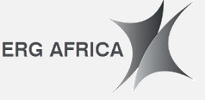Publication: Forbes
Author: Emanuela Barbiroglio
A new initiative, known as the Battery Passport, aims at making the whole production of future batteries more sustainable. It could ascertain the chemical composition and quality standards, strengthen recycling and even eliminate child labour.
The wider aim is to achieve these results through transparency and incentives. The Passport will work as a type of “quality seal” and therefore help tell the “story” of batteries that power much-used everyday products like smartphones and electric vehicles.
“The Battery Passport was born out of a need to unlock the full socioeconomic and environmental potential of batteries,” says the co-chair of the Global Battery Alliance (GBA) and CEO of Eurasian Resources Group, Benedikt Sobotka. “It also emerged out of the necessity to ensure that batteries are sourced, produced and recycled responsibly and sustainably to address the growing expectations among producers, suppliers and customers as well as society as a whole.”
Batteries will help reduce emissions in the transport and power sectors by 30% and so become a driver for decarbonization by 2030 with demand expected to increase 19 times, according to a recent research by the GBA. By the same year, an estimated 11 million tons of batteries is expected to reach their end of service lives.
The GBA wants production to not come at the expense of vulnerable communities. As many as 1 million children, however, are currently affected by mining activities in the Democratic Republic of the Congo (which supplies over two thirds of the world’s cobalt, a key battery metal).
“The Passport will be able to ascertain that the end-product was responsibly sourced and at no point connected with child labour,” says Sobotka.
While the Passport was announced at the 50th annual meeting of the World Economic Forum in Davos this year, it continues to be informed by close consultation with stakeholders throughout the value chain.
Sobotka explains that it was a natural development for GBA, launched in 2017 and whose members include Google GOOGL +0.6%, Microsoft MSFT +0.6%, Volkswagen, Honda, ERG, the World Bank and UNICEF among others. “A multistakeholder, private-public partnership which has grown to over 70 leading organizations and industry leaders spanning the entire value chain, the GBA aims to create a sustainable battery sector – one that supports the Paris Agreement, and safeguards human rights and economic development consistent with UN Sustainable Development Goals (SDGs) and UN Guiding Principles on Business and Human Rights.”
Meanwhile, electric vehicles have been put at the centre of economic recovery under the EU’s Green Deal and countries such as Germany, France and Greece are supporting the industry with unprecedented measures. “Now is therefore precisely the time to ensure that EVs and green technologies are powered by sustainable batteries,” Sobotka adds.
Alongside the Passport, a set of 10 guiding principles were also announced in Davos and signed by 42 organizations. These are:
- Maximizing the productivity of batteries
- Enabling a productive and safe second life use, circular recovery of battery materials
- Ensuring transparency of greenhouse gas emissions
- Securing their progressive reduction
- Prioritizing energy efficiency measures
- Increasing the use of renewable energy
- Fostering battery-enabled renewable energy integration, high quality job creation and skills development
- Eliminating child and forced labour
- Protecting public health and the environment
- Supporting responsible trade and anti-corruption practices, local value creation and economic diversification
Sobotka says that the value chain often faces information asymmetry, as participants may not be willing or able to volunteer data and information that would be collectively very useful and insightful. “That is also why the Passport will evolve through a gradual, collaborative process of knowledge exchange and iteration, ensuring that there is broad consensus over not only its conceptual framing but also the way it will work in practice.”
View the original article here: Forbes
